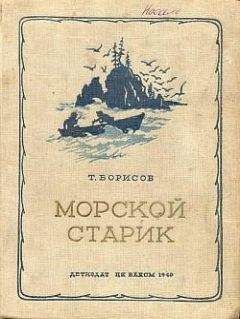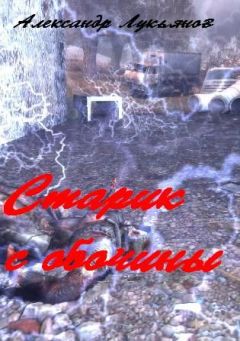Dodie Smith - I Capture the Castle
expression simply maudlin. For no reason at all, I grinned at myself, Then I began to think: "Who am I his Who am I ?" Whenever I do that, I feel one good push would shove me over the edge of lunacy; so I turned away from the glass and tried to get my mind off myself--I did it by
taking an interest in Miss Marcy's room.
It really is fascinating--all her personal possessions are so very
small. The pictures are postcard reproductions of Old Masters. She
has lots of metal animals about an inch long, little wooden shoes,
painted boxes only big enough to hold stamps. And what makes things
look even tinier than they are is that the room is large, with great
oak beams, and all Mrs. Jakes's furniture is so huge.
While I was examining the miniature Devon pitchers on the mantelpiece (five of them, with one wild flower in each), the glow from the cherry brandy wore off-probably because the wind down the chimney was blowing right through my knickers. So I wrapped myself in the quilt and lay on the bed. I was on the fringe of sleep when Miss Marcy arrived home for her lunch.
"You poor, poor child," she cried, coming over to put her hand on my forehead.
"I wonder if I ought to take your temperature ?"
I told her there was nothing wrong with me but strong drink.
She giggled and blinked and said "Well, reely!" and I suddenly felt very world-worn and elderly in comparison with her.
Then she handed me my gym-dress and got me some hot water. After I
had washed I felt quite normal, except that the whole morning lay on my conscience in a dreary, shaming sort of way.
"I must dash home," I said.
"I'm half-an-hour late with Father's lunch already."
"Oh, your Father's at Scoatney again," said Miss Marcy.
"They're giving him a nice, thick steak." She had heard from Mrs.
Jakes, who had heard from the butcher, who had heard from the Scoatney cook.
"So you can stay and have your lunch with me.
Mrs. Jakes is going to send up enough for two."
She has her meals on trays, from the inn kitchen, but she keeps things she calls "extra treats" in the big mahogany corner-cupboard.
"I like to nibble these at night," she said as she was getting some biscuits out.
"I always wake up around two o'clock and fancy some thing to eat."
I had a flash of her lying in the wide, sagging bed, watching the
moonlit square of the lattice window while she crunched her biscuits.
"Do you lie awake long?" I asked.
"Oh, I generally hear the church clock strike the quarter. Then I tell myself to be a good girl and go back to sleep.
I usually make up some nice little story until I drop off."
"What sort of story ?"
"Oh, not real stories, of course. Sometimes I try to imagine what happens to characters in books- after the books finish, I mean. Or I
think about the interesting people I know--dear Rose shopping in
London, or Stephen being photographed by that kind Mrs. Fox.
Cotton. I love making up stories about people."
"Don't you ever make them up about yourself?"
She looked quite puzzled.
"Do you know, I don't believe I ever do his I suppose I don't find myself very interesting."
There was a thump on the door and she went to take the tray in.
Mrs. Jakes had sent up stew and apple pie.
"Oh, good," said Miss Marcy.
"Stew's so comforting on a rainy day."
As we settled down to eat, I said how extraordinary it must be not to find oneself interesting.
"Didn't you ever, Miss Marcy ?"
She thought, while she finished an enormous mouthful.
"I think I did when I was a girl. My dear Mother always said I was very self-centered. And so discontented!"
I said: "You aren't now. What changed you?"
"God sent me a real grief, dear." Then she told me that her parents had died within a month of each other, when she was seven teen, and how dreadfully she had felt it.
"Oh, dear, I couldn't believe the sun would ever shine again.
Then our local clergyman asked me to help with some children he was
taking into the country- and, do you know, it worked a miracle for me his I suppose that was the beginning of finding others more interesting than myself."
"It wouldn't work a miracle for me," I said, "--I mean, if I were ever unhappy."
She said she thought it would in the end; then asked me if I was
missing Rose much. I noticed she was looking at me rather searchingly, so I said "Oh yes," very casually and talked brightly about Rose's trousseau and how happy I was for her, until we heard children's voices under the window as they trooped back to school. Then Miss Marcy
jumped up and powdered her nose very white with a tiny powder-puff out of a cardboard box.
"It's singing this afternoon," she said.
"We always look forward to that."
I thought of the singing on May Day, and of Simon, so embarrassed and so kind, making his speech to the children.
Oh, lovely day- before he had proposed to Rose!
We went downstairs and I thanked Mrs.
Jakes for everything, including the loan of the cherry brandy. (a
shilling--and that was a reduced price. Drink is ruinous.) The rain
had stopped, but it was still very gray and chilly.
"I hope it cheers up by Saturday," said Miss Marcy, as we dodged the drips from the chestnut tree, "because I'm giving the children a picnic. I suppose, dear, you couldn't find time to help me? You'd
think of such splendid games."
"I'm afraid I'm a bit busy at the castle," I said quickly--the children were screaming over some game in the playground and I didn't feel I
could stand an afternoon of that.
"How thoughtless of me! Of course you have your hands full at the week-ends--with the boys home to be looked after as well as your
Father. Perhaps you have some free time in these long, light evenings-some of the old folks do love to be read to, you know."
I stared at her in astonishment. Neither Rose nor I have ever gone in for that sort of thing; incidentally, I don't believe the villagers
really like good works being done to them. Miss Marcy must have
noticed my expression because she went on hurriedly: "Oh, it was just an idea. I thought it might take you out of yourself a bit-if you're
finding life dull without Rose."
"Not really," I said, brightly--and heaven knows, one can't call misery dull, exactly. Dear Miss Marcy, little did she know I had more than
missing Rose on my mind. Just then, some children came up with a frog in a cardboard box, so she said good-bye and went off with them to the pond to watch it swim.
When I got home, the castle was completely deserted, even About and Hcl were out. I felt guilty, because they had had no dinner, and called
and called them but they didn't come. My voice sounded despairing and I suddenly felt lonelier than I ever remember feeling, and more deeply sad. Everything I looked at was gray--gray water in the moat, great
gray towering walls, remote gray sky;
even the wheat, which was between green and gold, seemed colorless.
I sat on the bedroom window-seat, staring woodenly at Miss Blossom.
Suddenly her voice spoke, in my head: "You go to that:
picnic, dearie."
I heard myself ask her why.
"Because little Miss Blink eyes is right--it would take you out of yourself. And doing things for others gives you a lovely glow."
"So does port," I said cynically.
"That's no way to talk, not at your age," said Miss Blossom.
"Though I must say you'd have made a cat laugh, walking about in your drawers with that cherry brandy. Fancy you having a taste for
drink!"
"Well, I can't drown my sorrows in it often," I told her, "it's too expensive. Good works are cheaper."
"So's religion," said Miss Blossom.
"And some say that's best of all. You could get it all right if you went on trying, you know-you being so fond of poetry."
Now it is very odd, but I have often told myself things through Miss
Blossom that I didn't know I knew.
When she said that about my "getting" religion, I instantly realized that she was right--and it came as such a surprise to me that I thought
"Heavens, have I been converted?" I soon decided that it wasn't quite so drastic as that; all that had come to me, really, was--well, the
feasibility of conversion. I suddenly knew that religion,
God-something beyond everyday life--was there to be found, provided one is really willing. And I saw that though what I felt in the church
was only imagination, it was a step on the way; because imagination
itself can be a kind of willingness--a pretence that things are real, due to one's longing for them. It struck me that this was somehow tied up with what the Vicar said about religion being an extension of
art--and then I had a glimpse of how religion really can cure you of
sorrow; somehow make use of it, turn it to beauty, just as art can make sad things beautiful.
I found myself saying: "Sacrifice is the secret --you have to sacrifice things for art and it's the same with religion; and then the sacrifice turns out to be a gain." Then I got confused and I couldn't hold on to what I meant--until Miss Blossom remarked:
"Nonsense, duckie--it's perfectly simple.
You lose yourself in something beyond yourself and it's a lovely
rest."
I saw that, all right. Then I thought: "But that's how Miss Marcy cured her sorrow, too- only she lost herself in other people instead of in religion." Which way of life was best--hers or the Vicar's?
I decided that he loves God and merely likes the villagers, whereas she loves the villagers and merely likes Godand then I suddenly wondered if I could combine both ways, love God and my neighbor equally. Was I
really willing to?
And I was! Oh, for a moment I truly was! I saw myself going to church regularly, getting myself confirmed, making a little chapel with
flowers and candles- and being so wonderful to everyone at home and in the village, telling stories to the children, reading to the old people (i daresay tact could disguise that one was doing good works to them).
Would I be sincere or just pretending? Even if it began as pretence,
surely it would grow real before very long?
Perhaps it was real already--for the very thought of it rolled the
weight of misery off my heart, drove it so far away that, though I saw it still, I no longer felt it.
And then a most peculiar thing happened: I found myself seeing the new road that skirts King's Crypt -wide, straight, with plenty of room for through-traffic. And then I saw the busy part of the town, with its
tangle of narrow old streets that are so awful for motorists on market days, but so very, very beautiful.
Of course, what my mind's eye was trying to tell me was that the Vicar Miss Marcy had managed to by-pass the suffering that comes to
people--he by his religion, she by her kindness to others.
And came to me that if one does that, one is liable to miss too along with the suffering- perhaps, in a way, life itself.
Is that why Miss Marcy seems so young for her age- why the Vicar, in of all his cleverness, has that look of an elderly baby his I said aloud:
"I don't want to miss anything."
And then misery came rushing back like a river that has been dammed up.
I tried to open my heart to it, to welcome it as a part of my life's
experience,.
and at first that made it easier to bear. Then it got worse than ever before- it was physical as well as mental, my heart and ribs and
shoulders and chest, even my arms, ached. I longed so desperately for someone to comfort me that I went and laid my head on Miss Blossom's
bust I thought of it as soft and Motherly, under a royal-blue satin
blouse, and imagined her saying: "That's right--go through it, not round it, duckie. It's the best way for most of us in the end."
And then a different voice spoke in my head, a bitter, sarcastic
voice--my own at its very nastiest. It said:
"You've sunk pretty low, my girl, clasping a dressmaker's dummy.
And aren't you a bit old for this Miss Blossom nonsense?" Then, for the first time in my life, I began to wonder how I "did" Miss Blossom.
Was she like Stephen's mother, but not so humble--or nearer to a
charwoman of Aunt Millicent's? Or had I taken her from some character in a book his Suddenly I saw her more vividly than ever before,
standing behind the bar of an old-fashioned London pub. She looked at me most reproachfully, then put a sealskin jacket over her blue blouse, turned off all the lights, and went out into the night closing the door behind her. The next second, her bust was as hard as a board and smelt of dust and old glue.
And I knew she was gone for ever.
Luckily, Heloise came in then or I should have cried myself into a
state beyond recovery before tea-time. You can't cry on Heloise; she
thumps her tail sympathetically, but looks embarrassed and moves away.
Anyhow, I had to get her long-overdue dinner.
I haven't been able to bear looking at Miss Blossom since then.
It isn't only that she is now nothing more than a dressmaker's
dummy--she makes me think of the corpse of a dressmaker's dummy.
Religion, good works, strong drink- oh, but there is another way of
escape, a wicked one, far worse than drink.
I tried it on my birthday a week ago.
When I woke up that morning the sun was shining--the first time for
over a fortnight. I had barely taken this in when I heard music just
outside my bedroom door. I sprang up and dashed out to the landing,
and there on the floor was a small portable wireless, with a card on it saying: "Many happy returns from Stephen." That was what he had been saving up for! That was why he had posed for Leda Fox-Cotton!
I yelled out: "Stephen, Stephen!"
Thomas shouted from the hall.
"He's gone off to work early-I think he felt embarrassed about being thanked.
It's quite a good little wireless. Get dressed quickly and we'll play it over breakfast."
He came bounding upstairs and had carried the wireless off before I had so much as turned the dials. I was just going to tell him to bring it back when I thought, "Heavens, what does it matter ?" The early morning weight had descended on my heart.
While I dressed, I worked it out that only two weeks and two days
before, owning a wireless would have made me deliriously happy; and now it didn't mean a thing. Then it struck me that I could at least do my suffering to music.
When I got down, I found that Stephen had set the breakfast table for me and put flowers on it.
"And there's my present," said Thomas.
"I
haven't wrapped it up because I'm just in the middle of it." It was a book on astronomy, which he is very much interested in; I was glad he had chosen some thing he wanted himself, because though he gets a
little pocket money now, it will take a long time to make up for all




